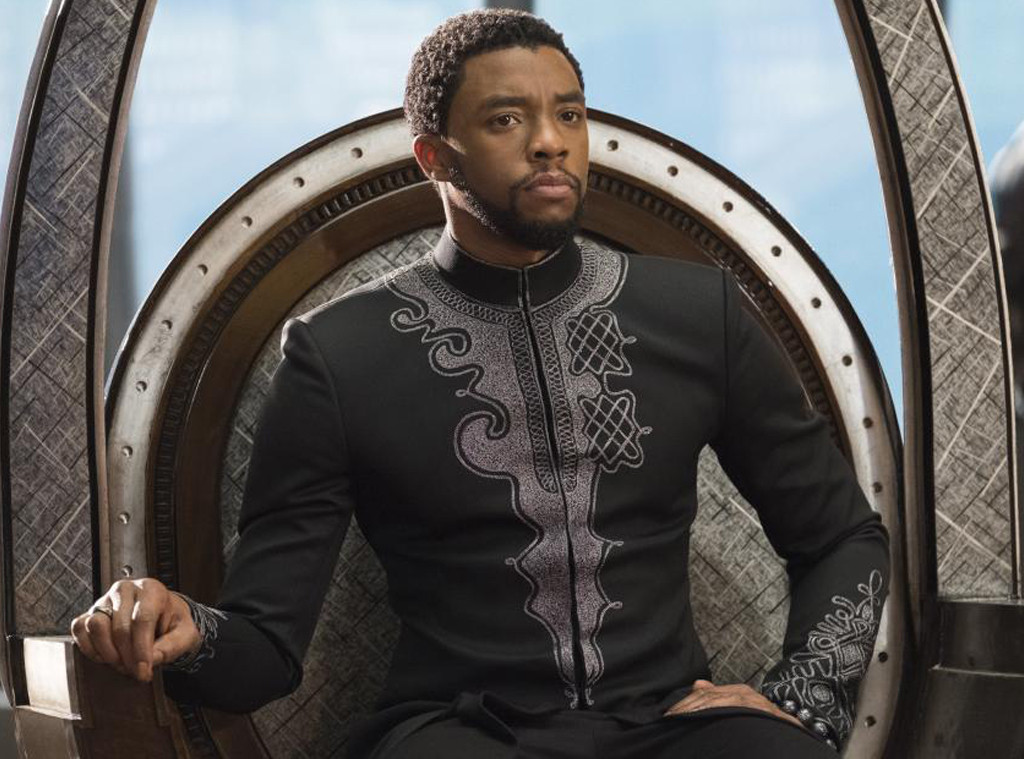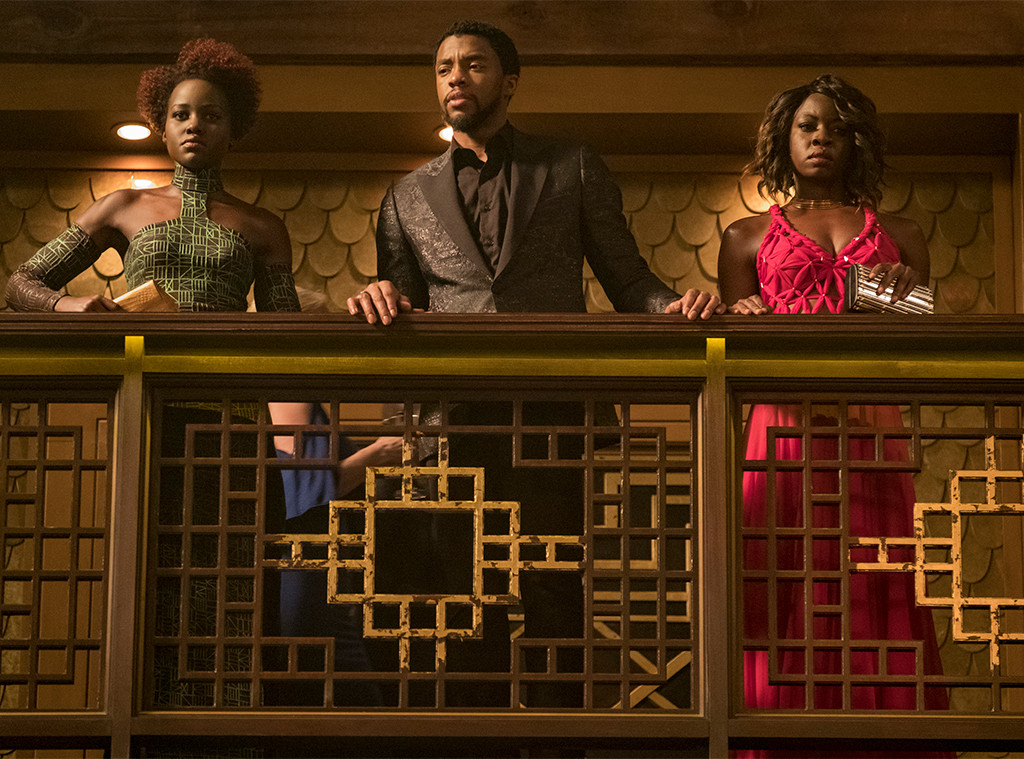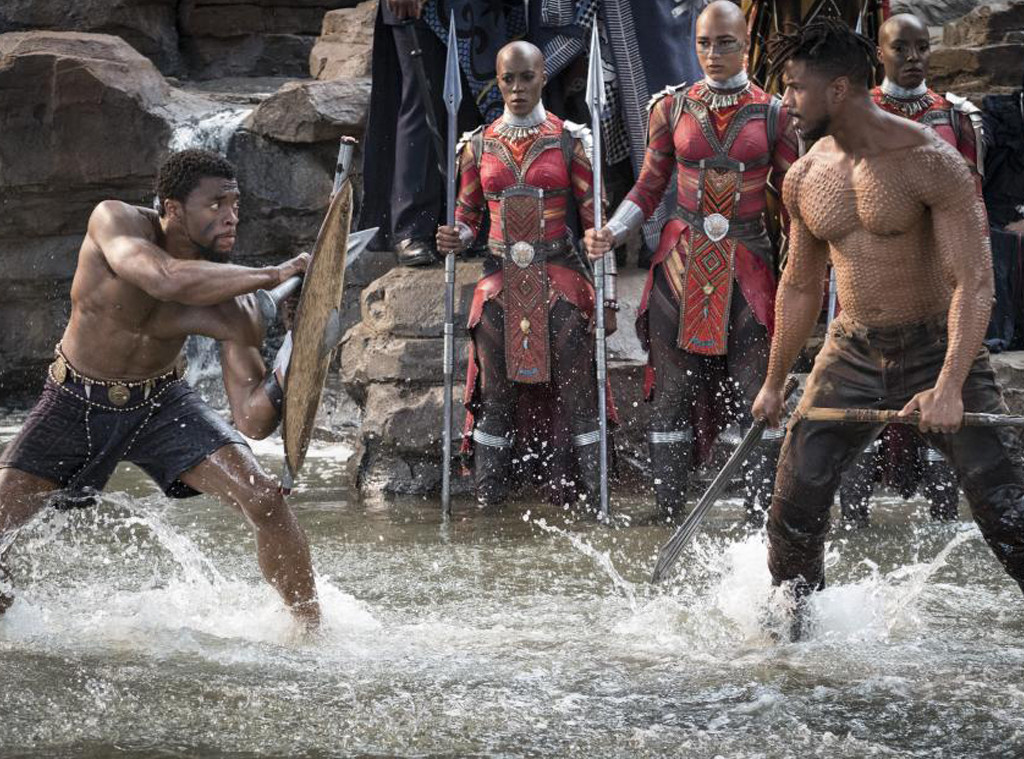
Disney/Marvel
Motion pictures can do a lot of things. They can move us to tears, force us to rethink our perspective on the world, even introduce us to corners of the world we never knew existed. But can they truly be a revolutionary force for change? It's a lot to ask of a film, knowing that, regardless of all the passion and feeling behind them, they're still the byproduct of a multi-billion dollar commercial industry. After all, what's the one thing most, if not all, successful industries try to avoid? Revolution.
But that's the question being posed right now as Marvel's latest comic book adaptation, Black Panther, roars its way into theaters around the world. And the answer for many, when it comes to this very movie, is a resounding yes. It can. In fact, in its own way, it already has.
For years, Hollywood has told people of color and other marginalized groups that their stories aren't universal enough. That they aren't profitable enough, globally. When a film focused on such a story did get made, it would generally be quickly ghettoized into its own sub-genre of film, as though its subject matter precluded it from being considered cinema, full stop. And if it was a commercial success? Well, that's a fluke, a one-off—certainly not something for studio heads to consider a viable path to profits.
So we've waited. And we've waited. And we waited some more. And now, we're finally here, with director Ryan Coogler delivering Chadwick Boseman's King T'Challa and his glorious kingdom of Wakanda in the hopes of, much like last year's smash hit Wonder Woman did before it, giving an underserved community the opportunity to finally see a superhero who looks just like them. And that, in and of itself, is revolutionary, my friends.
In fact, in the lead-up to the film's February 16 release, it already has secured itself a spot in the history books. Aside from its first-of-its-kind cast for a comic book movie, Black Panther is projected to take in at least $250 million globally over President's Day weekend, according to analyst projections. With North American ticket sales expected to tally $165 million in its first weekend, Black Panther is on track to knock Deadpool from its perch for best-ever February release. And Fandago has revealed that the film its its No. 4 pre-seller of all time, behind only the last three Star Wars movies. With more than 200 grassroots campaigns in black communities across the globe arranging screenings in order to commemorate the film's release, it's safe to say that anticipation for the film was at a high that we don't see all that often.

Marvel Studios
Of course, the revolutionary nature of the film, which re-contextualizes the character we met in 2016's Captain America: Civil War as a newly-crowned king returning to his highly-advanced nation, which has set itself apart from the rest of the world in order to guard its technological secrets, doesn't stop there. With a story that's a bit more heady and timely than the usual Marvel flick, T'Challa is forced to reconsider his society's isolationist way of life thanks to the arrival of villain Erik Killmonger (played by Michael B. Jordan), the son of his uncle and an American woman. Having been raised in America, and forced to endure all the racism and discrimination that comes along with it, Killmonger wants the Wakandans to share their metaphorical wealth with the oppressed people of the world to help shift the balance of power in favor of those who've historically been denied it.
"The overall conversation of what it is to be African or African-American is definitely one of those things," he added. "Drawing that bridge between that connection, I think it's going to start a conversation a lot of people didn't even know should be had."

Disney/Marvel
"I think one of the large messages is to recognize that we have a responsibility to each other, to uplift each other and to be one. To be one tribe to recognize that our success in our own lives needs to be manifested in the lives we see across from us," Whitaker said. "I think of that all the time when I'm working. I work a lot with different NGOs in conflict zones and stuff like that and we always have to see ourselves in the other person and understand that they are you and you are them. And if you have that understanding, you'll treat them differently and you work hard to make sure that their lives are uplifted."
Much like the Wakandans who are being forced to consider entering a diverse, global community, Hollywood can no longer ignore the notion that diverse stories can and will work across the globe. Not anymore. Not with Black Panther on the scene. Long live the king.
Black Panther is in theaters nationwide.
No comments:
Post a Comment